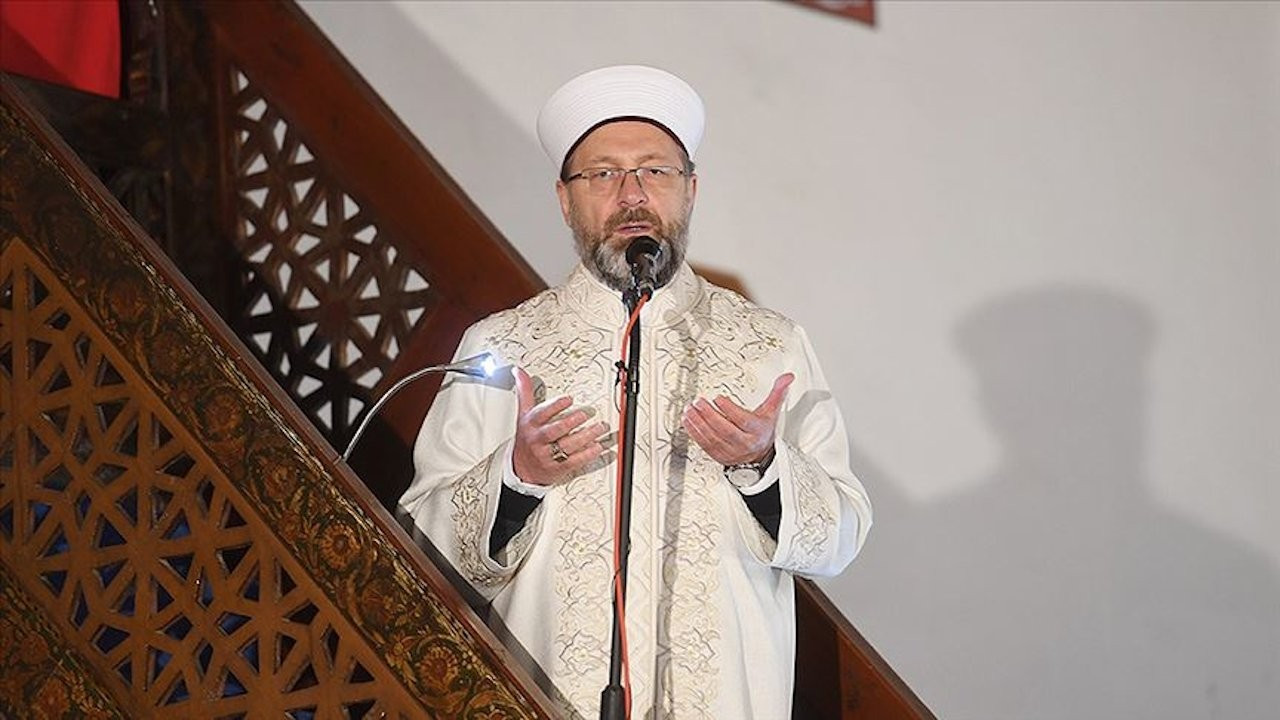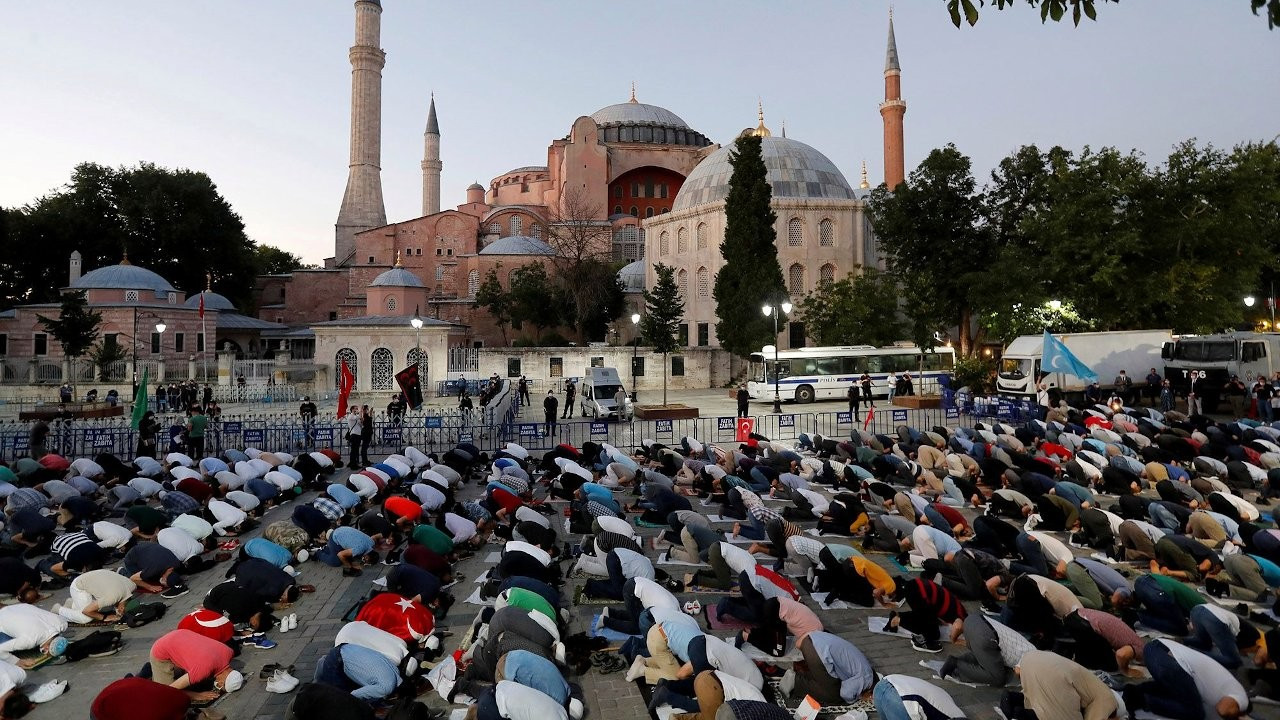Turkey's top religious body is 'Erdoğan's tool to silence discontent'
Under Erdoğan's AKP, Turkey's Religious Affairs Directorate's budget has far surpassed that of all other government ministries and departments. It has become a tool for Erdoğan to silence discontent and make the wrong look right.
K. Murat Yıldız / Duvar English
Turkey's Religious Affairs Directorate (Diyanet) was established in 1924 shortly after the founding of the modern Turkish Republic. The Ottoman Empire’s struggle for modernization in military, education, social, and political life was hindered greatly by its Islamic interpretations and practices by a zealous clergy. Printing machines and other modern technologies made their way to the Empire centuries after their invention because of such religious opposition. Similarly, reforms of the republic such as the enfranchisement of women were opposed by the same dogmatic circles.
Article 136 of the constitution
Therefore, in the early days of the republic, to ensure a "proper religious education" and to prevent the intervention of religion into social and political affairs, Turkey's Diyanet was established under Article 136 of the Turkish Constitution.
“The Diyanet, which is within the general administration, shall exercise its duties prescribed in its particular law, in accordance with the principles of secularism, removed from all political views and ideas, and aiming at national solidarity and integrity,” the article reads.
“The Diyanet is a state institution which was established to help people understand their religion, practice it without forced-dogma, have places of worship with clergy, and take care of the physical need of religious buildings. The Turkish Constitution explicitly states the duties of the Diyanet and states that it must be apolitical,” prominent Constitutional Law Professor and former deputy Süheyl Batum told Duvar English.
Regarding what the Diyanet has become in recent years, Batum stated that “the topics the Diyanet chooses for Friday sermons are all the same: Praising poverty and calling on people not to challenge authority. They adopt any government policy."
He then pointed out that such actions are not explicitly afforded to them via the constitution. "But the Diyanet is doing so anyways. If you are doing that, you are not a state of law."
‘The long hand of Erdoğan’
The Diyanet was greatly disliked by Islamists and many talked about abolishing it when they came to power. Yet, under President Erdoğan, the religious body has become a pillar of his "New Turkey" and an extension of his political machine both domestically and abroad.
The Diyanet's activities in Europe drew ire, as Europeans started to refer to it, along with the Presidency for Turks Abroad and Related Communities and Turkish Cooperation and Coordination Agency, as the "long hand of Erdoğan."
Record budget increase
To expand the influence of the Diyanet globally and at home, Erdoğan radically increased the budget and capabilities of the institution, which has become one of the most controversial issues in Turkish politics.
In the last ten years alone, the budget of the Diyanet has increased from 1.3 billion to 11.5 billion Turkish liras; Surpassing the budget of half of the ministries including the Foreign Ministry (5.7 billion TL), Interior Ministry (10.6 billion TL) and even the Presidency itself (4.4 billion TL).
When Erdoğan and his ruling Justice and Development Party (AKP) came to power, the annual budget allocated 555 million liras to the Diyanet, putting the increase of the Diyanet budget under the AKP at around 2,000 percent.
Appointment of Ali Erbaş
Although the duties of the Diyanet are explicitly defined in the relevant laws and regulations, such as “to execute the works concerning the beliefs, worship, and ethics of Islam, enlighten the public about their religion, and act as administrator of worship spaces,” the institution has turned into a branch of the ruling party since 2017 after the appointment of Ali Erbaş as the president of the Diyanet.
Erbaş caught global attention when he took center stage as the first person to pray at the Hagia Sophia after its conversion into a mosque from a museum. He held a sword in his hand during the religious ceremony.
As the photo of the sword-wielding Erbaş made the front pages around the world, the Diyanet gave fatwas to Turkish people struggling to survive due to the ever-increasing food inflation and heavy cost of living, saying "go to farmers markets late afternoon to save money," "cut down on unnecessary expenditures," and “the poor people are the closest to God.”
Religion has become a tool for Erdoğan to silence discontent and make the wrong look right. Poverty and obedience to authority are constantly praised by the Diyanet in its Friday sermons and fatwas.
Chief imam of Hagia Sophia
After the recent collapse of the lira against foreign currencies following President Erdoğan's decision to fire Central Bank Governor Naci Ağbal, Hagia Sophia's chief imam Mehmet Boynukalın tweeted on March 22 that, “God will test believers with fear and hunger; with a decline in their lives and belongings, but God will award the patient ones at the end."
“Prophet Mohammed lived the life of a poor man although he wasn’t poor, a life of moderation, but he neither promoted nor praised poverty,” Islamic Sciences and Interpretation Professor Mehmet Akif Koç told Duvar English.
“The overarching and most important principle is morality. No immoral act can be justified with Islam,” Koç said.
As the Diyanet praises poverty, it uses million-lira luxury cars purchased with taxpayer money, and organizes events at luxury hotels in the Turkish Riviera while the country is going through one of the most difficult economic times in its history.
Although the presidency has over a dozen education centers around the country, including one with a capacity of 322 people in Ankara, the Diyanet organized several events at 5-star hotels in Antalya only last year.
Diyanet is not a divine body
“They are trying to present the Diyanet as something sacred which cannot be questioned or audited. The actions of the Diyanet are attempts to hide the real problems of the country, such as the crumbling economy, unemployment, and the 128 billion dollars which ‘evaporated’ from the treasury,” Theology Professor Hayri Kırbaşoğlu told Duvar English.
Regarding who exactly works for the Diyanet, Kırbaşoğlu said, “There are many public servants, including at the Diyanet, that manipulate public opinion. There are bureaucrats, academics, public workers, institutions that forget that their duty is to serve the public, not the government and the ruling party."
“Sometimes I question if we really are dealing with human beings here. Pro-status, conformist, pragmatist conservatives departed from their own principles and turned into some kind of religious zombies.”
“These political and unethical actions of the Diyanet are among the reasons behind the increasing number of deists and atheists in Turkey,” Kırbaşoğlu concluded.
Parliamentary questions remain unanswered
Meanwhile, hundreds if not thousands of parliamentary questions have been asked regarding the Diyanet's spending. They went unanswered.
“I submitted hundreds of parliamentary questions to the Diyanet about their spending, tenders, property and financial transactions, but I never got a proper answer,” former deputy Prof. Özcan Yeniçeri told Duvar English.
“The Diyanet should avoid extravagance and gaudiness. They have to set an example. As an institution, the Diyanet has to show utmost attention to this. Islam forbids any kind of ill-usage and exploitation. The life of the Prophet and caliphs are clear examples of that. Examples which they should follow. Unfortunately, this is not the case," he noted.

 Turkey allocates more budget to top religious body than universitiesDomestic
Turkey allocates more budget to top religious body than universitiesDomestic Diyanet-employed Turkish imam to be deported from Belgium for being homophobicHuman Rights
Diyanet-employed Turkish imam to be deported from Belgium for being homophobicHuman Rights Hagia Sophia's chief imam wants secularism removed from constitutionPolitics
Hagia Sophia's chief imam wants secularism removed from constitutionPolitics